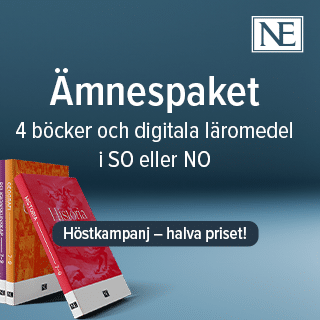Idrottsutövandets estetik: en narrativ studie om meningsskapande och lärande
Estetiska omdömen spelar stor roll i idrotten. Bland annat bidrar de till att utveckla aktiviteten. Det är en av slutsatserna i Ninitha Maivorsdotters avhandling ”Idrottsutövandets estetik: en narrativ studie om meningsskapande och lärande”.
Ninitha Maivorsdotter
Försteamanuensis Fiona Dowling
ÖU – Örebro universitet
2012-01-27
Idrottsutövandets estetik: en narrativ studie om meningsskapande och lärande
Hälsoakademin
Idrottsutövandets estetik: en narrativ studie om meningsskapande och lärande
I avhandlingen Idrottsutövandets estetik. En narrativ studie av meningsskapande och lärande riktas intresset mot idrottsutövandets estetik, dels med avseende på vilket lärande som synliggörs med hjälp av John Deweys estetikbegrepp, och dels med avseende på det estetiska erfarandets betydelse för meningsskapande och lärande i idrottsutövning. Undersökningen genomförs med hjälp av narrativa analyser av idrottstövares berättelser. Berättelserna är skrivna av såväl idrottslärarstudenter som de professionella författarna och tillika skridskoåkaren respektive långdistanslöparen Jenny Diski och Haruki Murakami. Undersökandet sker med fokus på de praktiska epistemologier som framträder i idrottsutövarnas berättelser. Avhandlingen visar på sätt att förstå och undersöka lärande i idrottsutövning som en komplex och mångfasetterad process, där känslor och förnimmelser har stor roll, men där andra element av erfarande – så som sociala, kulturella, historiska, fysiska och mentala, sammantaget leder idrottsutövandet vidare.
Abstract in English
The overall interest of this thesis is to explore aesthetic experience in sport and its significance for learning in sport. The main purpose is to contribute to a theoretical and methodological development of studies relating to learning in sport. The exploration is undertaken within the field of pragmatism using the works of John Dewey and Ludwig Wittgenstein. The exploration consists of four case studies, consisting mainly of narrative analyses of people s written stories of participating in different sporting activities. A practical epistemology analysis (PEA) with a focus on aesthetic experience is used in three of the studies. The theoretical contribution comprises exploring learning in sport as something that is connected to emotions and perceptions, where other elements of experience, such as the social, cultural, historical, physical and mental aspects, are also important. Examining learning in the light of aesthetic experience contributes to an examination of emotion s and perceptions as integral parts of sport, without reducing learning to only consisting of emotions and perceptions. The results of the study also contribute to the possibility of exploring values in sport-related learning and shed light on the importance of habits (feelings of familiarity) when learning sport. How people bodying the world aesthetically as part of their participation in sport has also been shown in one of the studies. The methodological contributions of the thesis consist of the development of PEA to include the examination of written texts. Furthermore, one of the studies includes the development of aesthetic events as a tool for exploring aesthetic experience in sport. Finally, a methodological contribution is made by using PEA to examine sport, since in the past PEA has only been used in studies in science education.
Relaterade länkar

Fritidshem
 Åk F–6
Åk F–6 Matematikångest
 Åk 4–Vux
Åk 4–Vux 






